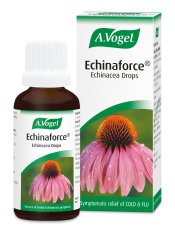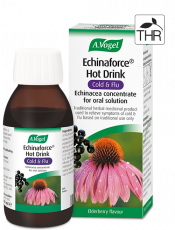8am - Crawl out of bed to the sound of your alarm ringing in your ears.
If you've had a solid 8 hours of uninterrupted sleep, you are likely not too perturbed by said alarm. On the other hand, if you stayed up late with your head in a screen, you may be feeling a little less delighted.
Getting less than 8 hours sleep will have a negative effect on your immune system, especially if it's a regular occurrence. Research shows that infection-fighting antibodies are reduced when we are sleep-deprived. Create a regular sleep pattern so that you go to bed and wake up at roughly the same time every day.
If your sleep is often disrupted during the night, try our Dormeasan Sleep drops on waking. Take 30 drops of the herbal remedy in a little water. You can take it half an hour before bedtime too, if you find getting off to the land of nod a problem.
8.30 - Shower, get dressed, and skip tooth brushing because well, you’re staying home anyway, there’s no point.
Or is there? Scientists think there could be a link between the state of oral health and the gut microbiota. Your microbiota is the lovely good bacteria that live in your gut. They help digest food and keep your immune system working well.
If your immune system is fighting an infection in your mouth, you will have less resources to defend against other invaders. So, it is important not to get lazy with your tooth-brushing regime. A.Vogel's Echinaforce toothpaste will be a great ally in this.
On the topic of improving your microbiota, try to add pre-biotics and pro-biotics to your day. A.Vogel's Molkosan Fruit is a digestive tonic you could consider. For a probiotic supplement with added vitamin C, try Optibac for daily immunity. You can find more information on the link between a healthy gut and immune system, here.
8.45 - A large cup of coffee to drink while you read your emails.
This might seem like a good way to shake off the bed head. However, it's going to give you a temporary boost of energy that will leave you feeling depleted later. Think of that increase in energy as an energy loan: you will have to pay it back at some point, with interest included. Chronic caffeine consumption raises levels of a stress hormone called cortisol. If your cortisol levels are raised over a long period, it can alter your immune responses. If you need an energy boost but don't want to compromise your immune system, try A.Vogel's Balance Mineral Drink. It's a more health-positive morning habit than coffee, because it's full of vitamins and minerals. It has a lovely strawberry flavour, so works well on its own or blended with fruit in a smoothie.
10am - A growing to-do list and chaos all around: phone calls, washing, emails, zoom meetings, more washing. A bar of sweet, sweet chocolate will knock this stress on its head.
Chocolate bars are a very tempting de-stressor on days like these. If stress is creating a sugar habit, it's time to look for a coping mechanism that is kinder to your body in the long run. Sugar competes with vitamin C, and vitamin C is good for the immune system. So, eating lots of sugar will undermine your body's defence mechanism.
Instead of stocking up on chocolate for these moments, pick up a bottle of AvenaCalm. It's a wonderful herbal blend to have in your cupboard. Take 25 to 30 drops twice daily to ease stress and anxiety and save the chocolate biccies for a Friday treat.
6pm - The work day is over and you can already hear the cork screw popping off a bottle of wine. Your favourite transition from work to relax mode.
While the odd tipple isn't a problem, excessive alcohol consumption impairs immune function. Try to transition into evening by taking a short walk instead. By swapping alcohol for outdoor exercise, your immune system gets a double boost. Both exercise and being in nature are proven to improve immune functioning in a variety of ways. There is more information on exercise as an immune booster here. If you are still craving a delectable drink after work, try a watermelon cooler instead. Find out why this is a top immune-boosting drink here.
7pm - Glass of wine – check; remote – check; sofa - check. Evening sorted.
If all you feel up to once evening comes round is couch and Netflix, that's ok. But be aware that your viewing habits could play a role in your immune function. It is early days for research into the effects of laughter on health, but some positives have been noted by researchers. Laughter puts us into a relaxed state, which is great for our immune function. So, choose a laugh out loud comedy to accompany your evening and not that weepy drama.
If comedy is not your thing; watch a nature programme instead. One study suggests that watching images of nature on a screen has a positive impact on stress levels. Lower stress levels means a better functioning immune system. That said, nothing beats a real walk in nature for health benefits.
10pm – Must. Stop. Scrolling. You know you should go to bed, but screens are so enticing.
The blue light of mobile phones, T.Vs, and laptops inhibit the production of melatonin. Melatonin is the hormone that controls your sleep cycle. So, if you want to get a good night's sleep, put an end to screens by 8pm. If you would like to find out more on how sleep plays a role in our immune function, How does sleep affect the immune system by Dr. Jen Tan.
To have an immune-nourishing bedtime, create a routine; stick to it; and don't forget to brush your teeth. I have ended up sounding exactly like your mum, haven't I?
These small daily habits have a big impact on our health. Do a review of your daily habits to make sure they are nourishing and kind to yourself. Your immune system (and your Mum) will thank you for it!
References:
https://www.ncbi.nlm.nih.gov/pmc/articles/PMC5099388/
https://drstevenfreeman.com/2018/07/31/oral-health-and-the-immune-system-whats-the-connection/
https://pubmed.ncbi.nlm.nih.gov/2303315/
https://pubmed.ncbi.nlm.nih.gov/29727694/
https://pubmed.ncbi.nlm.nih.gov/12690938/
https://www.ncbi.nlm.nih.gov/pmc/articles/PMC2686627/table/T1/









